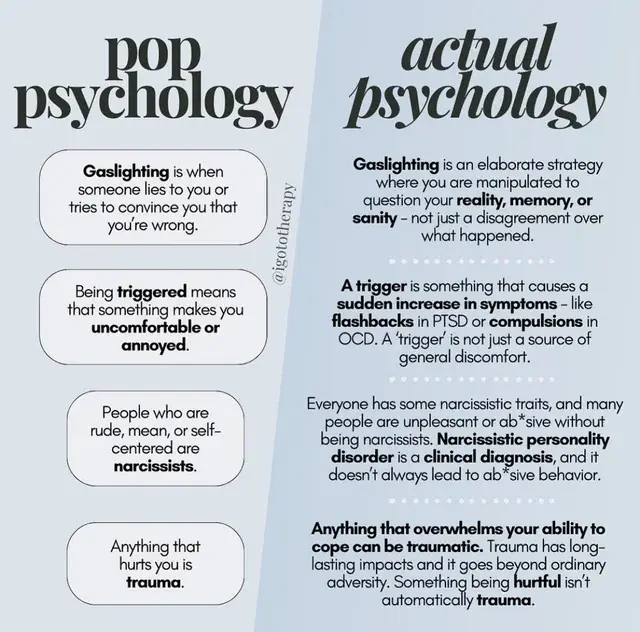view the rest of the comments
Cool Guides
Rules for Posting Guides on Our Community
1. Defining a Guide Guides are comprehensive reference materials, how-tos, or comparison tables. A guide must be well-organized both in content and layout. Information should be easily accessible without unnecessary navigation. Guides can include flowcharts, step-by-step instructions, or visual references that compare different elements side by side.
2. Infographic Guidelines Infographics are permitted if they are educational and informative. They should aim to convey complex information visually and clearly. However, infographics that primarily serve as visual essays without structured guidance will be subject to removal.
3. Grey Area Moderators may use discretion when deciding to remove posts. If in doubt, message us or use downvotes for content you find inappropriate.
4. Source Attribution If you know the original source of a guide, share it in the comments to credit the creators.
5. Diverse Content To keep our community engaging, avoid saturating the feed with similar topics. Excessive posts on a single topic may be moderated to maintain diversity.
6. Verify in Comments Always check the comments for additional insights or corrections. Moderators rely on community expertise for accuracy.
Community Guidelines
-
Direct Image Links Only Only direct links to .png, .jpg, and .jpeg image formats are permitted.
-
Educational Infographics Only Infographics must aim to educate and inform with structured content. Purely narrative or non-informative infographics may be removed.
-
Serious Guides Only Nonserious or comedy-based guides will be removed.
-
No Harmful Content Guides promoting dangerous or harmful activities/materials will be removed. This includes content intended to cause harm to others.
By following these rules, we can maintain a diverse and informative community. If you have any questions or concerns, feel free to reach out to the moderators. Thank you for contributing responsibly!

I can't be the only one, so:
https://www.mayoclinic.org/diseases-conditions/narcissistic-personality-disorder/symptoms-causes/syc-20366662
Worth keeping in mind the reason NPD happens is when a child is abused and does not develop an inherent sense of their own self worth, one possible coping mechanism is to create a false ego, which by necessity is bigger than a healthy person's ego so it can have resilience and redundancy. It's brittle, fragile, so they build it bigger. If a pwNPD had a normal size ego, being delicate as it is it would shatter in an average day from all the normal ego damage that people naturally need to endure.
The narcissism of NPD isn't a disorder. It's more like a blood clot, a scab. If you tear a scab off, you'll just make someone bleed again. It's the same with NPD. Damage to the ego is what causes the actual damage to the person. That, and discrimination. The disorder is the state of the brain being injured and needing that barrier in place to be functional. We consider narcissism part of the disorder of NPD in the same way we consider a scab to be a part of a wound.
A lot of people say "stop being narcisstic! Get a smaller ego, and your disorder will go away!" That isn't how mental disorders work. It's dangerous advice that can and does get people seriously hurt. A person living with NPD who loses their grandiosity can suffer trauma, can self harm, can take action that results in loss of relationships and jobs, and can even attempt suicide.
That could be a reason, but I wouldn't say that is the reason.
In the absence of scientific consensus, I trust my own lived experiences and those of other people with the disorder I know. Science is so behind on personality disorders. Modern psychologists have about the same amount of understanding of personality disorders that Isaac Newton had of chemistry. And Newton was an alchemist.
The only issue I have with this is people like Trump who actively harm others because they do not seek treatment for their disorder. I very much want people like them to suffer trauma over a loss of grandiosity. And I want it to happen in public and be excruciating.
Who told you Trump has NPD? If it was some rando joe schmoe, they're not qualified to make that judgement because they're not an expert. And if it was a qualified psychiatrist, they were breaking the APA's rules. The APA forbids psychiatrists from diagnosing celebrities with mental disorders. It's called the Goldwater rule. You can't just do psychiatry at random people on the street, celebrity or no celebrity. You have to talk to a patient before you can diagnose them. And if a psychiatrist has spoken to Trump, then doctor patient confidentiality applies and revealing a diagnosis would be a massive breach of professional ethics.
This is even from the Wikipedia article on the Goldwater rule: